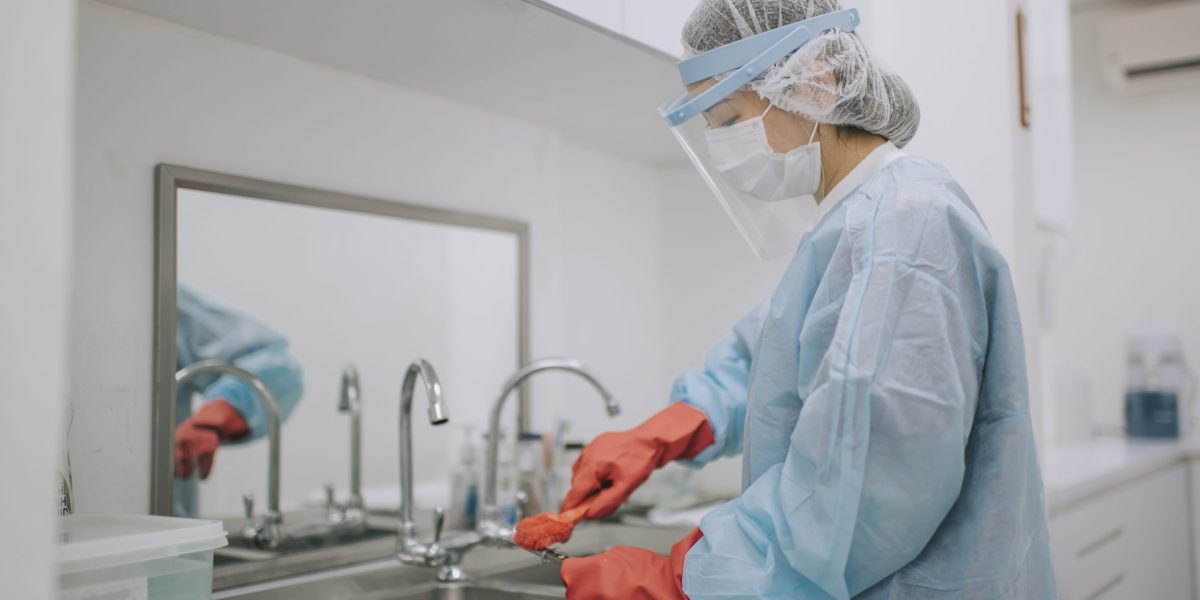
- Surgical equipment sterilizers are a relatively unknown opportunity in the medical profession. The role requires no college degree, is in high demand, and pays upward of $70,000 annually. This is music to the ears of Gen Z, who have a passion for healthcare and low-investment career options.
There’s a lot of work out there to be had—sometimes it’s just about knowing where to look. One unknown medical job can pay upwards of $70,000 annually and doesn’t require much training.
Sterilizing surgical tools is a hot job in the medical industry—it’s expected that medical equipment preparer roles will increase 6% from 2021 to 2031, according to the U.S. Bureau of Labor Statistics. That’s faster than the national growth average for all domestic occupations.
Yet few have actually heard about the job. The need for this role is quite obvious: Hospitals need their equipment to be properly disinfected to prevent transmission of disease between patients. An entry-level role in the profession can earn between $50,000 and $70,000 annually, and requires less training than other medical professions like anesthesiologists and neurologists.
The job presents a straight shot to the middle class, without a costly educational investment. That’s music to the ears of many young Gen Z students who are financially struggling or have student debt, but still want to funnel into medical careers.
“I had never heard of this job,” Fatima el Idrissi, a 38-year-old who completed her surgical equipment sterilization training, told The Wall Street Journal. “Now I’ve got a first step in a hospital, so I can go on to other medical fields if I want.”
Equipment sterilization is also a gateway to better jobs in the industry, including surgical or radiology technicians, who can rake in salaries of $100,000 and $400,000, respectively.
Health care and Gen Z are a match made in heaven
Despite over 4 million Gen Zers falling behind in their careers—and not in employment, education, or training—there are many opportunities for the generation to tap into incognito jobs.
In 2024, about 6.2 million new jobs that opened did not require a bachelor’s or associate’s degree, with 72% residing in understaffed industries like health care, according to a study from the Burning Glass Institute. A huge part of that can be chalked up to people simply not knowing these jobs exist, with their sights set on more well-known roles like physicians, nurses, and physical therapists.
About 18% of the class of 2025, Gen Z’s newest working cohort, plans to pursue a career in the health care industry, according to a 2025 report from Monster. The situation may be the perfect opportunity for the generation facing a less-than-ideal job market to carve a pathway for a long career. It’s the second most sought-after professional field for graduates, trailing slightly behind business, but topping others like computer technology and finance.
It’s also a perfect option for many Gen Z who want to succeed without fear of being crippled by a costly college degree. Many have had their American Dream crushed by sky-high tuition costs and crippling debt—with some already turning to trade work and vocational schooling. With less than one year of training, Gen Z can turn surgical equipment sterilization into a budding career.
The next step in their career journey could be roles like radiology or surgical technicians, who can rake in salaries of $80,000 and $100,000 respectively, without undertaking lengthy degree programs.
What it takes to get into surgical equipment sterilization
Unlike other medical professions, surgical equipment sterilizers don’t need multiple advanced degrees.
El Idrissi, like many others in her profession, took up a relatively short course to jump-start her work. She attended LaGuardia Community College, which offers a central service technician certificate that can take less than a year to complete and costs a fraction of the price of a 4-year degree at just $1,500. The only qualifications are to have a high school diploma or equivalency and English-language proficiency.
Students who complete the course also need to complete a 400-hour internship after training, and can receive job placement support. From there, possibilities in the healthcare industry will only continue to grow.
This story was originally featured on Fortune.com
Source link

